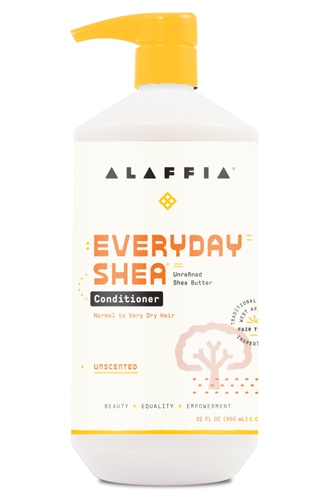In the aftermath of the “other” pandemic of blatant racism and social injustice, many have been asking themselves how they can support the black community. One tangible way of giving back is by supporting and buying from black-owned businesses. This would be especially welcome in the natural foods space.
While sales of natural and organic products continue to grow in the high single- digits year-over-year, the industry’s lack of leadership diversity, including brands owned by people of color and women, is holding it back from its full market potential, according to the New Hope Network. By supporting diversification, we can tap into a new level of innovation and multicultural within the health and wellness space. It will also help the market better meet the needs of the black community.
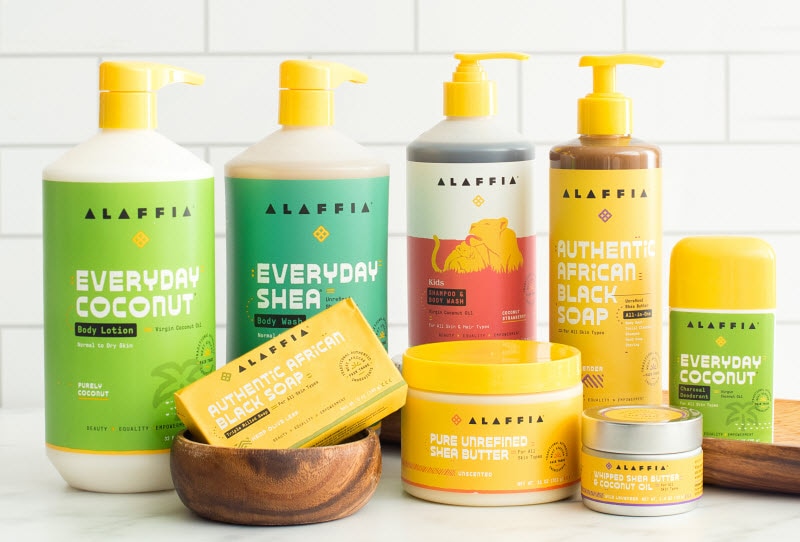
Black Owned Brands to Shop at Vitacost.com
Below are six black-owned brands you need to know about—and will thank yourself for exploring.
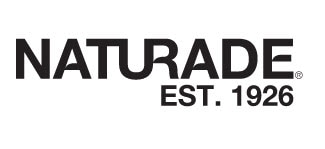
As origin stories go,
Naturade founders Kareem Cook and Claude Tellis had the inspiration to start a supplements brand after realizing how many people in their families suffered from diet-related illnesses, like obesity and diabetes. Within a year, they co-led a movement that resulted in a ban on junk food in the Los Angeles public schools. Two years later they were awarded the vending machine contract for every public high school and middle school in Los Angeles. Flush with that success, they realized that they had to think bigger to really affect change on a global level – so they bought Naturade, a nutritional company founded in 1926, in 2012 for $8 million. The idea was to make a “Whole Foods” quality product accessible to a demographic that shopped at Walmart.
Social impact: Tellis and Cook realized the people who most needed quality nutritional products had the least access. To combat this crisis, their mission is to help underserved populations – especially those in black neighborhoods – eat better. The result was a line of nutritional products meant to make healthy living available to all people, regardless of their race or socioeconomic status.
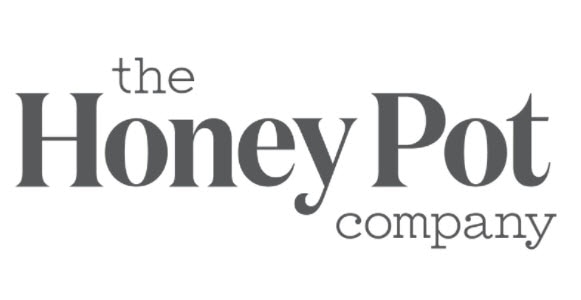
Bea Dixon was inspired to create
The Honey Pot after her own experience with bacterial vaginosis and her struggle to find relief. She says on the brand’s website, “One night, an ancestor visited me in a dream and gifted me with a vision to heal myself. With her help, I created the Honey Pot Co to solve for what other brands wouldn’t, using the power of herbs.”
The company is a plant-based, black-owned feminine care brand founded by Dixon, one of the first 40 women of color to raise $1 million in venture capital. Today, it’s a multi-million dollar company that sells plant-based feminine care products, including affordable natural washes, wipes, tampons, panty sprays,
pads, lubricants and other herbal items.
Social impact: The Honey Pot believes that all humans with vaginas deserve menstrual care. To that end, they’ve partnered with Happy Period, an organization that provides menstrual hygiene kits to those who are homeless, low income or living in poverty.
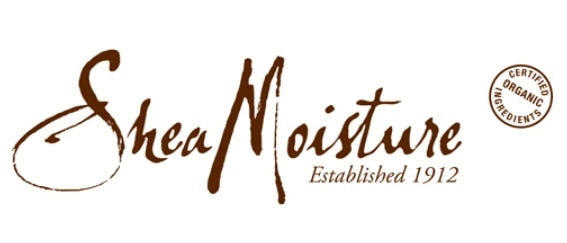
Sofi Tucker started selling Shea Nuts at the village market in Bonthe, Sierra Leone in 1912. By age 19, the widowed mother of four was selling Shea Butter, African Black Soap and her homemade hair and skin preparations all over the countryside. In 1991, Liberians Nyema Tubman and Richelieu Dennis, Tucker’s grandchildren, founded
Shea Moisture in 1991. In 2015 and 2016, Shea Moisture was voted Overall Favorite Brand in Naturally Curly’s annual Best of the Best survey. Since selling Sundial, the umbrella company that manufactures Shea Moisture and Nubian Heritage, to Unilever in 2017, Dennis has used his gains to invest in black women.
Social impact: According to Shea Moisture’s website, Dennis continues his mission of
empowerment through Community Commerce, Sundial’s business model aimed at providing minority women with access to educational and entrepreneurial resources. For instance, they partner with women-run cooperatives in northern and southern Ghana that produce locally-sourced shea butter, African black soap and coconut oil.
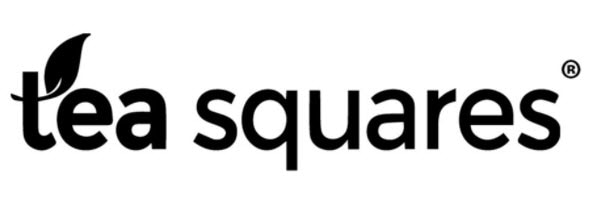
Jordan Buckner founded
Tea Squares in 2016, when he experienced a demanding work schedule that took a huge toll on his ability to focus. He realized what he really needed was a natural snack to help stay focused and energized, without the jitters or crash that accompanied coffee or energy drinks. He set out to create on himself, with a little help from a few of his friends.
They realized that tea contains an energizing combination of naturally occurring caffeine and l-theanine, an amino acid that helps regulate the absorption of caffeine and reduce stress. By infusing the snack bars with organic tea, they created a caffeinated energy snack that tastes good and keeps you focused. Tea Squares is now being sold in about 300 retail stores around Chicago.
Social impact: Tea Squares’ strong social mission translates into a fellowship program. Buckner partners with community organizations to find high-potential candidates, who will spend two to three months learning business, sales, and marketing skills. The program helps these Fellows develop the tools and resources they need to pursue their own dreams.
 Alaffia
Alaffia founder and CEO Olowo-n’djo Tchala felt compelled to fight the gender inequality and poverty he witnessed growing up in the small village of Kaboli in Northern Togo, West Africa.
He wanted to reach his social justice goals through sustainable health, education and environmental initiatives. He founded
Alaffia with Prairie Rose Hyde in 2003. He met Rose in his home village of Kaboli, Togo in 1996 where she was invited to serve as an environmental volunteer in the Peace Corp. In 2004, armed with his understanding of the value of indigenous West African resources and an understanding of sustainable business ideologies, they launched Alaffia’s ?rst collective, redefining the natural products industry through its values of beauty, equality and empowerment.
Social impact: Alaffia is heavily involved with ECOCERT, which created For Life, a label that demonstrates corporate responsibility. ECOCERT’s fair trade product certification, Fair for Life, includes many of Alaffia’s products with a primary base of shea or coconut. Fair trade certification ensures producers in economically disadvantaged countries receive a greater percentage of the price paid by consumers. As an example, Alaffia pays 15-25 percent above market price for shea nuts.
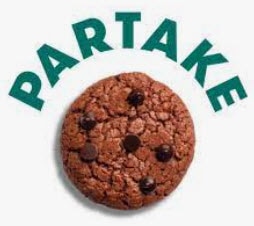
When Partake’s founder Denise Woodard’s daughter Vivienne, just shy of one-years-old, had an anaphylactic reaction after eating a snack made with just two simple ingredients, Woodard decided to take matters into her own hands. Rather than have her daughter feel like a victim of allergies, Woodard wanted her to feel empowered to make good choices. To facilitate those choices, Woodard decided to create her own food brand, starting with cookies.
The motivation was to create an enticing product for those people who were not just gluten free, but had multiple allergies, as her daughter does (Vivienne is allergic to eggs and corn). For this reason, Partake Foods is free of the top eight allergens: milk, eggs, peanuts, tree nuts, fish, crustacean shellfish, wheat, and soy. It's also free from artificial flavors, genetically modified foods, and pesticides. Partake sells both cookies in eight flavors and they recently released a brownie mix and a baking mix for pancakes, waffles, muffins, cakes, and more.
Social Impact:
Getting safe food into the hands of food insecure families with food allergies is a top priority for Partake. Food allergies affect 1 in 13 children across our country, and according to Food Allergy Research and Education (FARE), Black children are at a significantly higher risk of developing these allergies. They partner with Food Equality Initiative to ensure families in need have access to the food, education and advocacy they deserve.
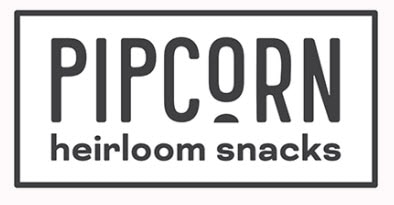 Pipcorn
Pipcorn debuted just over nine years ago at Smorgasburg, a trendy open-air market in Brooklyn, NY. The founders featured hand-stamped bags of heirloom kernels popped in their mother’s spaghetti pot. The catalyst for PIpcorn was when Jeff Martin was helping his sister, Jen, move apartments. With everything packed up except a bag of tiny heirloom popcorn kernels that Jen found in the Chicago health food store where she worked, they popped batch after batch of the most delicious popcorn they’d ever had! They liked this one so much, they tracked down the Indiana farmer who grew it from his family’s heirloom seed stock.
Soon after their debut, they were featured on Oprah, then followed that with a deal on Shark Tank., The company sources from family farmers who save seeds from each harvest to plant for the following season. The popped kernels are miniature, with a satisfying crunch, and because the corn has almost no hulls, they are easier to digest than traditional popcorn.
Social impact: Compared to conventional corn, heirloom corn offers superior nutrition, quality and sustainability benefits. The company is devoted to environmental sustainability by calling attention to the value of heirloom seeds, open pollination, and agricultural biodiversity.
 As origin stories go, Naturade founders Kareem Cook and Claude Tellis had the inspiration to start a supplements brand after realizing how many people in their families suffered from diet-related illnesses, like obesity and diabetes. Within a year, they co-led a movement that resulted in a ban on junk food in the Los Angeles public schools. Two years later they were awarded the vending machine contract for every public high school and middle school in Los Angeles. Flush with that success, they realized that they had to think bigger to really affect change on a global level – so they bought Naturade, a nutritional company founded in 1926, in 2012 for $8 million. The idea was to make a “Whole Foods” quality product accessible to a demographic that shopped at Walmart.
Social impact: Tellis and Cook realized the people who most needed quality nutritional products had the least access. To combat this crisis, their mission is to help underserved populations – especially those in black neighborhoods – eat better. The result was a line of nutritional products meant to make healthy living available to all people, regardless of their race or socioeconomic status.
As origin stories go, Naturade founders Kareem Cook and Claude Tellis had the inspiration to start a supplements brand after realizing how many people in their families suffered from diet-related illnesses, like obesity and diabetes. Within a year, they co-led a movement that resulted in a ban on junk food in the Los Angeles public schools. Two years later they were awarded the vending machine contract for every public high school and middle school in Los Angeles. Flush with that success, they realized that they had to think bigger to really affect change on a global level – so they bought Naturade, a nutritional company founded in 1926, in 2012 for $8 million. The idea was to make a “Whole Foods” quality product accessible to a demographic that shopped at Walmart.
Social impact: Tellis and Cook realized the people who most needed quality nutritional products had the least access. To combat this crisis, their mission is to help underserved populations – especially those in black neighborhoods – eat better. The result was a line of nutritional products meant to make healthy living available to all people, regardless of their race or socioeconomic status.
 Bea Dixon was inspired to create The Honey Pot after her own experience with bacterial vaginosis and her struggle to find relief. She says on the brand’s website, “One night, an ancestor visited me in a dream and gifted me with a vision to heal myself. With her help, I created the Honey Pot Co to solve for what other brands wouldn’t, using the power of herbs.”
The company is a plant-based, black-owned feminine care brand founded by Dixon, one of the first 40 women of color to raise $1 million in venture capital. Today, it’s a multi-million dollar company that sells plant-based feminine care products, including affordable natural washes, wipes, tampons, panty sprays, pads, lubricants and other herbal items.
Social impact: The Honey Pot believes that all humans with vaginas deserve menstrual care. To that end, they’ve partnered with Happy Period, an organization that provides menstrual hygiene kits to those who are homeless, low income or living in poverty.
Bea Dixon was inspired to create The Honey Pot after her own experience with bacterial vaginosis and her struggle to find relief. She says on the brand’s website, “One night, an ancestor visited me in a dream and gifted me with a vision to heal myself. With her help, I created the Honey Pot Co to solve for what other brands wouldn’t, using the power of herbs.”
The company is a plant-based, black-owned feminine care brand founded by Dixon, one of the first 40 women of color to raise $1 million in venture capital. Today, it’s a multi-million dollar company that sells plant-based feminine care products, including affordable natural washes, wipes, tampons, panty sprays, pads, lubricants and other herbal items.
Social impact: The Honey Pot believes that all humans with vaginas deserve menstrual care. To that end, they’ve partnered with Happy Period, an organization that provides menstrual hygiene kits to those who are homeless, low income or living in poverty.
 Sofi Tucker started selling Shea Nuts at the village market in Bonthe, Sierra Leone in 1912. By age 19, the widowed mother of four was selling Shea Butter, African Black Soap and her homemade hair and skin preparations all over the countryside. In 1991, Liberians Nyema Tubman and Richelieu Dennis, Tucker’s grandchildren, founded Shea Moisture in 1991. In 2015 and 2016, Shea Moisture was voted Overall Favorite Brand in Naturally Curly’s annual Best of the Best survey. Since selling Sundial, the umbrella company that manufactures Shea Moisture and Nubian Heritage, to Unilever in 2017, Dennis has used his gains to invest in black women.
Social impact: According to Shea Moisture’s website, Dennis continues his mission of
empowerment through Community Commerce, Sundial’s business model aimed at providing minority women with access to educational and entrepreneurial resources. For instance, they partner with women-run cooperatives in northern and southern Ghana that produce locally-sourced shea butter, African black soap and coconut oil.
Sofi Tucker started selling Shea Nuts at the village market in Bonthe, Sierra Leone in 1912. By age 19, the widowed mother of four was selling Shea Butter, African Black Soap and her homemade hair and skin preparations all over the countryside. In 1991, Liberians Nyema Tubman and Richelieu Dennis, Tucker’s grandchildren, founded Shea Moisture in 1991. In 2015 and 2016, Shea Moisture was voted Overall Favorite Brand in Naturally Curly’s annual Best of the Best survey. Since selling Sundial, the umbrella company that manufactures Shea Moisture and Nubian Heritage, to Unilever in 2017, Dennis has used his gains to invest in black women.
Social impact: According to Shea Moisture’s website, Dennis continues his mission of
empowerment through Community Commerce, Sundial’s business model aimed at providing minority women with access to educational and entrepreneurial resources. For instance, they partner with women-run cooperatives in northern and southern Ghana that produce locally-sourced shea butter, African black soap and coconut oil.
 Jordan Buckner founded Tea Squares in 2016, when he experienced a demanding work schedule that took a huge toll on his ability to focus. He realized what he really needed was a natural snack to help stay focused and energized, without the jitters or crash that accompanied coffee or energy drinks. He set out to create on himself, with a little help from a few of his friends.
They realized that tea contains an energizing combination of naturally occurring caffeine and l-theanine, an amino acid that helps regulate the absorption of caffeine and reduce stress. By infusing the snack bars with organic tea, they created a caffeinated energy snack that tastes good and keeps you focused. Tea Squares is now being sold in about 300 retail stores around Chicago.
Social impact: Tea Squares’ strong social mission translates into a fellowship program. Buckner partners with community organizations to find high-potential candidates, who will spend two to three months learning business, sales, and marketing skills. The program helps these Fellows develop the tools and resources they need to pursue their own dreams.
Jordan Buckner founded Tea Squares in 2016, when he experienced a demanding work schedule that took a huge toll on his ability to focus. He realized what he really needed was a natural snack to help stay focused and energized, without the jitters or crash that accompanied coffee or energy drinks. He set out to create on himself, with a little help from a few of his friends.
They realized that tea contains an energizing combination of naturally occurring caffeine and l-theanine, an amino acid that helps regulate the absorption of caffeine and reduce stress. By infusing the snack bars with organic tea, they created a caffeinated energy snack that tastes good and keeps you focused. Tea Squares is now being sold in about 300 retail stores around Chicago.
Social impact: Tea Squares’ strong social mission translates into a fellowship program. Buckner partners with community organizations to find high-potential candidates, who will spend two to three months learning business, sales, and marketing skills. The program helps these Fellows develop the tools and resources they need to pursue their own dreams.
 Alaffia founder and CEO Olowo-n’djo Tchala felt compelled to fight the gender inequality and poverty he witnessed growing up in the small village of Kaboli in Northern Togo, West Africa.
He wanted to reach his social justice goals through sustainable health, education and environmental initiatives. He founded Alaffia with Prairie Rose Hyde in 2003. He met Rose in his home village of Kaboli, Togo in 1996 where she was invited to serve as an environmental volunteer in the Peace Corp. In 2004, armed with his understanding of the value of indigenous West African resources and an understanding of sustainable business ideologies, they launched Alaffia’s ?rst collective, redefining the natural products industry through its values of beauty, equality and empowerment.
Social impact: Alaffia is heavily involved with ECOCERT, which created For Life, a label that demonstrates corporate responsibility. ECOCERT’s fair trade product certification, Fair for Life, includes many of Alaffia’s products with a primary base of shea or coconut. Fair trade certification ensures producers in economically disadvantaged countries receive a greater percentage of the price paid by consumers. As an example, Alaffia pays 15-25 percent above market price for shea nuts.
Alaffia founder and CEO Olowo-n’djo Tchala felt compelled to fight the gender inequality and poverty he witnessed growing up in the small village of Kaboli in Northern Togo, West Africa.
He wanted to reach his social justice goals through sustainable health, education and environmental initiatives. He founded Alaffia with Prairie Rose Hyde in 2003. He met Rose in his home village of Kaboli, Togo in 1996 where she was invited to serve as an environmental volunteer in the Peace Corp. In 2004, armed with his understanding of the value of indigenous West African resources and an understanding of sustainable business ideologies, they launched Alaffia’s ?rst collective, redefining the natural products industry through its values of beauty, equality and empowerment.
Social impact: Alaffia is heavily involved with ECOCERT, which created For Life, a label that demonstrates corporate responsibility. ECOCERT’s fair trade product certification, Fair for Life, includes many of Alaffia’s products with a primary base of shea or coconut. Fair trade certification ensures producers in economically disadvantaged countries receive a greater percentage of the price paid by consumers. As an example, Alaffia pays 15-25 percent above market price for shea nuts.
 When Partake’s founder Denise Woodard’s daughter Vivienne, just shy of one-years-old, had an anaphylactic reaction after eating a snack made with just two simple ingredients, Woodard decided to take matters into her own hands. Rather than have her daughter feel like a victim of allergies, Woodard wanted her to feel empowered to make good choices. To facilitate those choices, Woodard decided to create her own food brand, starting with cookies.
The motivation was to create an enticing product for those people who were not just gluten free, but had multiple allergies, as her daughter does (Vivienne is allergic to eggs and corn). For this reason, Partake Foods is free of the top eight allergens: milk, eggs, peanuts, tree nuts, fish, crustacean shellfish, wheat, and soy. It's also free from artificial flavors, genetically modified foods, and pesticides. Partake sells both cookies in eight flavors and they recently released a brownie mix and a baking mix for pancakes, waffles, muffins, cakes, and more.
Social Impact:
Getting safe food into the hands of food insecure families with food allergies is a top priority for Partake. Food allergies affect 1 in 13 children across our country, and according to Food Allergy Research and Education (FARE), Black children are at a significantly higher risk of developing these allergies. They partner with Food Equality Initiative to ensure families in need have access to the food, education and advocacy they deserve.
When Partake’s founder Denise Woodard’s daughter Vivienne, just shy of one-years-old, had an anaphylactic reaction after eating a snack made with just two simple ingredients, Woodard decided to take matters into her own hands. Rather than have her daughter feel like a victim of allergies, Woodard wanted her to feel empowered to make good choices. To facilitate those choices, Woodard decided to create her own food brand, starting with cookies.
The motivation was to create an enticing product for those people who were not just gluten free, but had multiple allergies, as her daughter does (Vivienne is allergic to eggs and corn). For this reason, Partake Foods is free of the top eight allergens: milk, eggs, peanuts, tree nuts, fish, crustacean shellfish, wheat, and soy. It's also free from artificial flavors, genetically modified foods, and pesticides. Partake sells both cookies in eight flavors and they recently released a brownie mix and a baking mix for pancakes, waffles, muffins, cakes, and more.
Social Impact:
Getting safe food into the hands of food insecure families with food allergies is a top priority for Partake. Food allergies affect 1 in 13 children across our country, and according to Food Allergy Research and Education (FARE), Black children are at a significantly higher risk of developing these allergies. They partner with Food Equality Initiative to ensure families in need have access to the food, education and advocacy they deserve.
 Pipcorn debuted just over nine years ago at Smorgasburg, a trendy open-air market in Brooklyn, NY. The founders featured hand-stamped bags of heirloom kernels popped in their mother’s spaghetti pot. The catalyst for PIpcorn was when Jeff Martin was helping his sister, Jen, move apartments. With everything packed up except a bag of tiny heirloom popcorn kernels that Jen found in the Chicago health food store where she worked, they popped batch after batch of the most delicious popcorn they’d ever had! They liked this one so much, they tracked down the Indiana farmer who grew it from his family’s heirloom seed stock.
Soon after their debut, they were featured on Oprah, then followed that with a deal on Shark Tank., The company sources from family farmers who save seeds from each harvest to plant for the following season. The popped kernels are miniature, with a satisfying crunch, and because the corn has almost no hulls, they are easier to digest than traditional popcorn.
Social impact: Compared to conventional corn, heirloom corn offers superior nutrition, quality and sustainability benefits. The company is devoted to environmental sustainability by calling attention to the value of heirloom seeds, open pollination, and agricultural biodiversity.
Pipcorn debuted just over nine years ago at Smorgasburg, a trendy open-air market in Brooklyn, NY. The founders featured hand-stamped bags of heirloom kernels popped in their mother’s spaghetti pot. The catalyst for PIpcorn was when Jeff Martin was helping his sister, Jen, move apartments. With everything packed up except a bag of tiny heirloom popcorn kernels that Jen found in the Chicago health food store where she worked, they popped batch after batch of the most delicious popcorn they’d ever had! They liked this one so much, they tracked down the Indiana farmer who grew it from his family’s heirloom seed stock.
Soon after their debut, they were featured on Oprah, then followed that with a deal on Shark Tank., The company sources from family farmers who save seeds from each harvest to plant for the following season. The popped kernels are miniature, with a satisfying crunch, and because the corn has almost no hulls, they are easier to digest than traditional popcorn.
Social impact: Compared to conventional corn, heirloom corn offers superior nutrition, quality and sustainability benefits. The company is devoted to environmental sustainability by calling attention to the value of heirloom seeds, open pollination, and agricultural biodiversity.



